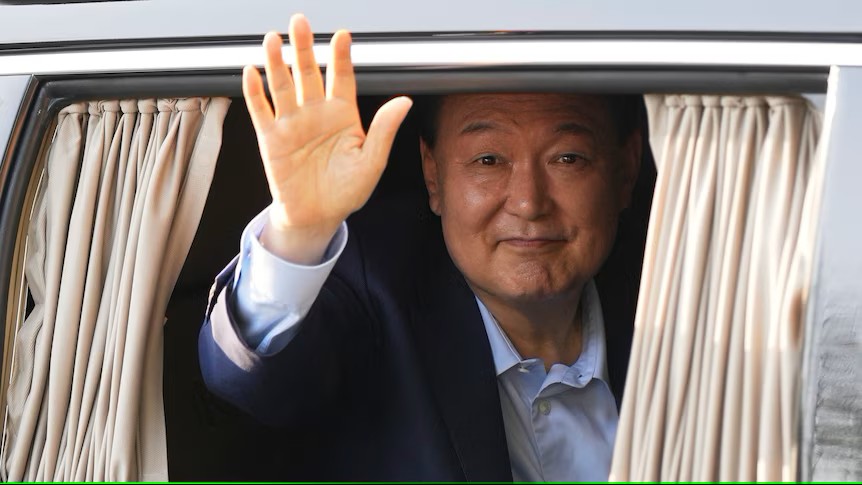Why Former South Korean President Yoon Suk Yeol Faces Rebellion Charges and Possible Death Penalty
International International NewsPosted by NewAdmin on 2025-04-15 08:35:44 |
Share: Facebook | Twitter | Whatsapp | Linkedin Visits: 25

Former South Korean president Yoon Suk Yeol is facing a historic and highly controversial criminal trial following his impeachment and removal from office. Yoon, who had been a prominent figure in South Korea’s conservative political landscape, became the first sitting president in the country’s history to be indicted while still in power. His trial began just ten days after his official ouster, with the Seoul Central District Court examining rebellion charges against him. The charges stem from his abrupt declaration of martial law in December 2024, a move that many saw as a drastic overreach of presidential powers.
At the heart of the case is Yoon’s deployment of military forces to key government institutions, including the National Assembly and election commission offices. The former president justified his actions by citing threats from elements he claimed were sympathetic to North Korea and pointed to the unresolved Budget Bill and allegations of corruption as national emergencies. On December 3, 2024, Yoon sent troops and even military helicopters into Seoul, shutting down political activity and alarming the public and opposition lawmakers. Mass protests erupted almost immediately, forcing Yoon to rescind his order within six hours.
The trial is focused on whether Yoon’s martial law order was a legitimate constitutional response or a deliberate attempt to undermine democratic governance. South Korea’s constitution does not allow for the president to dissolve or suspend the National Assembly, even under emergency rule. Legal experts say the court must decide if Yoon’s intentions were to stage a coup or simply respond to political chaos. Some argue the case is complex, given that the military deployment did not result in widespread violence or casualties.
Yoon has denied all charges of rebellion and insurrection, asserting in court that his actions were not part of a coup and that he aimed only to safeguard the nation. He claimed the martial law declaration was intended to raise awareness of the opposition’s behavior. The trial’s outcome could be life-changing for Yoon, with a potential sentence ranging from life imprisonment to the death penalty if found guilty. Meanwhile, South Korea prepares for a snap presidential election on June 3, likely to deepen the country’s political divisions as the People Power Party and the Democratic Party vie for leadership.
Search
Categories
Recent News
- Hyderabad Gears Up for Presidential Visit, Traffic to Be Affected
- Hyderabad's Traffic Transformation: A Multi-Agency Effort
- Digital India's Dark Side: Elderly and Vulnerable Targeted
- Hyderabad Gears Up for Christmas Feast: Traffic Diversions in Store
- Hyderabad's Homicide Surge: A City on Edge
- Hyderabad's Biryani Scam: When Food Delivery Meets Fraud
- RBI's UDGAM Portal: Hyderabad's Cyber Fraud Warning
- Hyderabad Gears Up for Presidential Visit: Traffic Advisory Issued
Popular News
- Navigating IPO Market Dynamics Amid Volatility and Regulatory Changes
- Innovative Green Practices and Environmental Initiative
- Massive Worldwide Microsoft Outage Disrupts Multiple Sectors
- తెలుగుదేశం పార్టీ - పేదరికాన్ని నిర్మూలించడంలో వాగ్దానం
- Universities Embrace Remote Learning Technologies Amidst Ongoing Pandemic